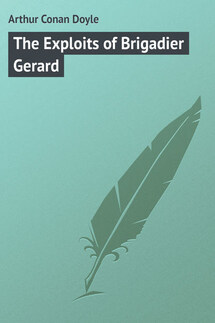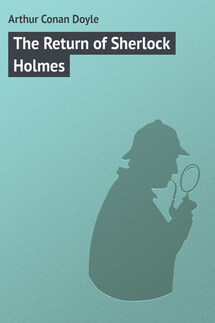The Tragedy of The Korosko - страница 2
Finally, there was Mr. James Stephens, a Manchester solicitor (junior partner of Hickson, Ward, and Stephens), who was travelling to shake off the effects of an attack of influenza. Stephens was a man who, in the course of thirty years, had worked himself up from cleaning the firm's windows to managing its business. For most of that long time he had been absolutely immersed in dry, technical work, living with the one idea of satisfying old clients and attracting new ones, until his mind and soul had become as formal and precise as the laws which he expounded. A fine and sensitive nature was in danger of being as warped as a busy city man's is liable to become. His work had become an engrained habit, and, being a bachelor, he had hardly an interest in life to draw him away from it, so that his soul was being gradually bricked up like the body of a mediaeval nun. But at last there came this kindly illness, and Nature hustled James Stephens out of his groove, and sent him into the broad world far away from roaring Manchester and his shelves full of calf-skin authorities. At first he resented it deeply. Everything seemed trivial to him compared to his own petty routine. But gradually his eyes were opened, and he began dimly to see that it was his work which was trivial when compared to this wonderful, varied, inexplicable world of which he was so ignorant. Vaguely he realised that the interruption to his career might be more important than the career itself. All sorts of new interests took possession of him; and the middle-aged lawyer developed an after-glow of that youth which had been wasted among his books. His character was too formed to admit of his being anything but dry and precise in his ways, and a trifle pedantic in his mode of speech; but he read and thought and observed, scoring his "Baedeker" with underlinings and annotations as he had once done his "Prideaux's Commentaries." He had travelled up from Cairo with the party, and had contracted a friendship with Miss Adams and her niece. The young American girl, with her chatter, her audacity, and her constant flow of high spirits, amused and interested him, and she in turn felt a mixture of respect and of pity for his knowledge and his limitations. So they became good friends, and people smiled to see his clouded face and her sunny one bending over the same guide-book.
The little Korosko puffed and spluttered her way up the river, kicking up the white water behind her, and making more noise and fuss over her five knots an hour than an Atlantic liner on a record voyage. On deck, under the thick awning, sat her little family of passengers, and every few hours she eased down and sidled up to the bank to allow them to visit one more of that innumerable succession of temples. The remains, however, grow more modern as one ascends from Cairo, and travellers who have sated themselves at Gizeh and Sakara with the contemplation of the very oldest buildings which the hands of man have constructed, become impatient of temples which are hardly older than the Christian era. Ruins which would be gazed upon with wonder and veneration in any other country are hardly noticed in Egypt. The tourists viewed with languid interest the half-Greek art of the Nubian bas-reliefs; they climbed the hill of Korosko to see the sun rise over the savage Eastern desert; they were moved to wonder by the great shrine of Abou-Simbel, where some old race has hollowed out a mountain as if it were a cheese; and, finally, upon the evening of the fourth day of their travels they arrived at Wady Halfa, the frontier garrison town, some few hours after they were due, on account of a small mishap in the engine-room. The next morning was to be devoted to an expedition to the famous rock of Abousir, from which a great view may be obtained of the second cataract. At eight-thirty, as the passengers sat on deck after dinner, Mansoor, the dragoman, half Copt, half Syrian, came forward, according to the nightly custom, to announce the programme for the morrow.









